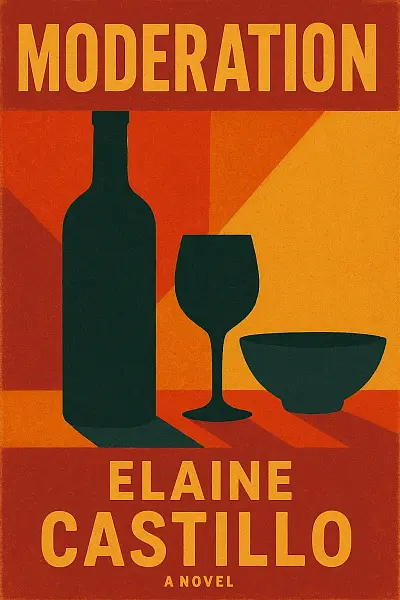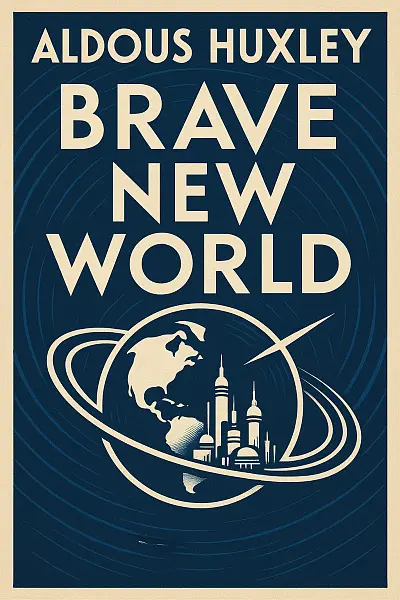
Moderation
by: Elaine Castillo
Girlie Delmundo is absolutely crushing it as the world’s top content moderator—her sharp instincts and relentless drive let her climb Paragon’s virtual ranks, just as the world outside crumbles with crisis. When Paragon acquires Fairground, the hottest VR company, Girlie grabs her chance for a killer promotion—soaring income, prestige, and a way to secure her family’s future, even if it means sinking deeper into digital isolation.
Everything shifts when she meets William Cheung, the mysterious, guarded co-founder behind Fairground’s virtual empire. As Girlie gets pulled into William’s orbit, the boundaries between her curated online life and messy reality blur. She’s forced to confront how much of herself she’s willing to compromise—and whether love, even virtually, can be truly moderated.
Castillo's voice is razor-sharp and wry, mixing biting cultural commentary with real tenderness, creating a vibe that’s at once clever, quirky, and totally heartfelt. Will Girlie and William risk honesty for connection, or is every relationship just another thing to monitor?
""To listen with care is to honor the complexity we’d rather turn away from.""
Let's Break This Down
The Author's Voice
Atmosphere
Expect a vibrant, hyper-attuned world where intellect shimmers in every corner. Castillo’s pages are thick with the pulse of our digital-now: social media feeds, online debates, and the fractured sense of community they spin. There’s a restless energy here, an urgency that mirrors the ecosystem we all navigate—contemporary, chaotic, self-aware, and unafraid to make readers a little uncomfortable in the best way.
Prose Style
Castillo’s sentences are sharp, kinetic, and packed to the brim with insight. She writes with the agility of a brilliant conversationalist—quotidian detail bumping up against philosophical riff, pop-culture references spliced with theory, and a wry humor winding through even her heaviest points. There’s a density to her writing—paragraphs rarely pause to catch their breath, and footnotes, asides, and tangents abound. It's the kind of prose that rewards a close reader but occasionally asks you to work for your reward. Think Maggie Nelson meets internet comment section—with more lyricism.
Pacing
Don’t come expecting a breezy stroll—this book moves at the pace of a late-night DM spiral: quick, digressive, sometimes circular, but always propulsive. Castillo dwells when it matters, but she’s just as likely to pivot mid-paragraph, keeping readers lively (and on their toes!). There's a cumulative momentum, with ideas layering atop each other, sometimes threatening to overflow. The pace is part of the appeal: it’s intellectual fast-talk—occasionally frenetic, but never lazy.
Themes and Mood
Spiritually, the book sits somewhere between razor-wire critique and openhanded invitation. Castillo’s style makes you feel like you’re in a heated living room argument—sharp, deeply personal, but driven by genuine care for finding better ways of being together. She interrogates moderation, identity, and the limits of “acceptable” discourse with intellectual heft but always ties it back to lived experience, infusing the text with emotional honesty and palpable urgency. You’ll finish feeling energized, maybe a little riled up, and definitely more questioning.
Overall Rhythms
Bracing, polyphonic, unflinchingly current. Castillo’s writing rhythm mimics the online world she’s examining: bursts of brilliance, moments of irritation, sudden connection. Get ready for language that rarely sits still—she wants to challenge you, and she’s not afraid to demand your full attention for the ride.
Key Moments
-
Wickedly smart essays dismantling the "neutrality" myth in literature and criticism
-
That unforgettable Twitter storm takedown—online moderation meets real-life fallout
-
Voice sharp enough to cut glass—Castillo's prose refuses to stay in "safe" territory
-
Unexpected gut-punches: from pop culture nostalgia to decolonial rage, often within the same page
-
A dazzling meditation on what “moderation” really means in a world built for extremes
-
Relentless self-interrogation—Castillo puts her own complicity under the microscope
-
Standout sections: Filipino-American identity explored through food, fandom, and hurtling cross-cultural microaggressions
Plot Summary
Moderation by Elaine Castillo follows the intertwined lives of three main characters—Lena, a sharp-witted Filipino-American writer; Isla, an enigmatic moderator for an online feminist forum; and Jules, a disillusioned graduate student obsessed with digital discourse. The novel opens with Lena becoming embroiled in a heated online debate that spirals out of her control, leading her to meet Isla, whose cryptic messages guide Lena through the thorny ethics of digital moderation. Jules’s subplot reveals his secret attempts to infiltrate the forum under various identities, culminating in his exposure and ejection, which shatters his self-concept. The climax arrives as Lena confronts both Isla and Jules at a live panel event—forcing everyone to reckon with their online personas versus their real selves. By the end, Lena steps away from the digital fray, newly aware of the necessity—and limits—of moderation in both speech and action.
Character Analysis
Lena serves as the novel’s anchor, her arc moving from idealistic outspokenness to a nuanced embrace of complexity and restraint; she learns the value of listening and the dangers of unchecked certainty. Isla remains aloof and beguiling for much of the story, but her motivations are eventually revealed as deeply personal—a desire to heal the wounds she’s experienced within both digital and real communities. Jules, meanwhile, is the most tragic figure: his fixation on online spaces masks a profound alienation, and his journey from disruption to remorse reveals both the power and peril of anonymity. Altogether, the trio represents distinct responses to the challenges of online discourse, each transformed by their collisions with one another.
Major Themes
Castillo delves into themes of speech versus silence, community and alienation, and the dangers of digital absolutes. The question of what it means to “moderate”—to limit, temper, or facilitate—runs through every chapter, with Lena’s evolution showing how moderation can be both refuge and exclusion. The novel interrogates the seductive certainty of online forums, showing how easy it is to become both victim and perpetrator of digital mob justice, as seen in Jules’s downfall. Ultimately, Moderation suggests that true connection requires uncomfortable vulnerability and a willingness to accept messiness, both on and offline.
Literary Techniques & Style
Elaine Castillo’s style is vibrant, layered, and unflinchingly contemporary—she moves between tight, biting dialogue and lush interior monologues. The novel’s structure jumps between online posts, emails, and traditional narrative, capturing the fragmented, hyperlinked quality of 21st-century communication. Symbolism abounds—the recurring motif of “fire” invokes both destruction and illumination, mirroring the forum’s cyclical controversies. Castillo’s use of irony and shifting perspectives urges readers to question every narrative, echoing the slipperiness of online truth.
Historical/Cultural Context
Set in the mid-to-late 2010s Californian Bay Area and its virtual spaces, Moderation directly engages with the era’s explosion of identity politics, social media, and callout culture. Castillo’s characters are shaped by the legacies of diaspora, digital migration, and the new ethical terrain of speech online, grounding the story in the specific tensions and anxieties of post-2016 America.
Critical Significance & Impact
Moderation has been praised for its fearless take on what it means to live—and fight—for ideals in an age of performative activism and instantaneous backlash. Castillo’s willingness to inhabit the gray zones of online life has made the novel both controversial and beloved, sparking vibrant debates in literary and activist circles. Its relevance endures as society grapples with the repercussions of digital engagement, ensuring Moderation remains a touchstone for conversations about speech, power, and community.

Love, desire, and digital truth—where passion blurs every boundary
What Readers Are Saying
Right for You If
If you’re the kind of reader who loves digging into sharp essays about culture, literature, identity, and how the world shapes what we read (and how we read it), Moderation is totally in your lane. Seriously, if you geek out over writers like Roxane Gay, Jia Tolentino, or even bell hooks, you’ll probably find a ton to get excited about here. People who crave nuanced takes over simple hot takes will feel right at home.
- Fans of smart, slightly spicy cultural criticism? Add to your TBR, stat.
- Folks who love dissecting representation, reading habits, or the ethics of storytelling? Bingo. Elaine Castillo goes deep, and she isn’t afraid to be both critical and heartfelt.
- If you’re looking for writing that feels personal AND political, with that “let’s get a coffee and unpack this for hours” vibe—yeah, you’ll vibe with this.
But, heads up: if you’re hoping for a breezy or light read, or you’re not much for essay collections and cultural analysis, this probably isn’t the book for you. The writing is smart and passionate, but it asks for your patience—so if you just want a fast plot or cozy escape, you might struggle to connect.
Also, if you’re not comfortable having your reading assumptions challenged or prefer books that neatly wrap everything up, Moderation could feel a bit much. It’s more about sparking questions than giving tidy answers.
So, long story short: If you love thoughtful, at-times confrontational essays and you’re into conversations about where art and social justice collide, give this a shot. If you need your books straightforward, fiction-focused, or feel-good, you may want to skip this one.
What You're Getting Into
Ready for a wild ride through the tangled world of online discourse?
Moderation by Elaine Castillo dives into the complexities of internet culture, following a sharp, witty narrator as she navigates the messy battlegrounds of social media, identity politics, and the eternal debate over who gets to speak—and who gets silenced.
Brimming with incisive humor and bold insight, the book unpacks the emotional toll and moral questions at play when trying to “do the right thing” in a world obsessed with being heard.
It's punchy, provocative, and absolutely designed to get you thinking—prepare for a fiercely smart meditation on the blurry lines between activism, allyship, and authenticity.
Characters You'll Meet
-
Elaine Castillo: Reflective and incisive narrator navigating her journey as a writer and thinker online. Her arc centers on examining the tension between personal conviction and the pressures of digital discourse.
-
The Online Reader: A shifting, collective presence representing the audience Castillo addresses and grapples with throughout her essays. This character is crucial in exploring themes of empathy, responsibility, and the risks of superficial engagement.
-
Castillo’s Literary and Cultural Influences: Though not a traditional “character,” authors, thinkers, and artists populate Castillo's mental landscape, shaping her arguments and inner conflicts. Their presence adds emotional depth and intellectual complexity to her self-examination.
-
The Self-Censoring Critic: An internalized voice reflecting Castillo’s doubts about critique, moderation, and complicity. This character embodies the struggle between calling out harm and practicing compassion in public life.
More Like This
If the fierce cultural critique and razor-sharp wit of Jia Tolentino’s Trick Mirror had you buzzing, you’ll instantly vibe with Moderation, as Castillo threads incisive personal essays with probing observations about identity, belonging, and the fractured digital landscape. Similarly, fans of Trick Mirror will recognize the deft way Castillo unpacks modern anxieties—sometimes painfully, sometimes hilariously—while remaining searingly self-aware.
For those captivated by the layered storytelling and unapologetic voice of Roxane Gay’s Bad Feminist, there's an almost kinship here; both books invite readers to embrace contradictions, challenge comfortable narratives, and explore what it means to exist at the messy intersection of cultures, communities, and technology. Castillo walks that tightrope with a courage and complexity that keeps the pages turning.
Moderation also channels the restless, questioning energy seen in Fleabag—that TV phenomenon everyone still references. Much like Phoebe Waller-Bridge’s creation, Castillo’s essays take the messiness of living online and offline and transform it into something raw and oddly comforting, exposing the flaws and humor in self-reflection and contradiction. That blend of dark comedy, vulnerability, and razor-edged cultural insight will hit home for anyone who likes their commentary both heart-achingly real and just a little bit wicked.
Critic's Corner
What would it mean to moderate not just content, but human connection itself? Elaine Castillo’s Moderation dives straight into the heart of this twenty-first-century tangle, daring us to imagine love and meaning when algorithms curate our every feeling. In this near-future techscape, Castillo probes whether digital curation can ever replace messy, lived intimacy—or if trying only sharpens our longing for the real thing.
Castillo’s writing is, as always, delightfully kinetic: sentences loop and spar with sharp, knowing humor, riffing off contemporary internet discourse while never sacrificing emotional resonance. Her voice is distinctively sly and observational, capturing the absurdist workplace dystopia her protagonist, Girlie Delmundo, inhabits. There’s a thrilling immediacy to the narrative, layered through meta asides and moments of razor-edged self-awareness that invite the reader to laugh—and cringe in recognition—at the contradictions of modern connection. Castillo’s dialogue stands out: rapid-fire, code-switching, sometimes caustic but deeply human, infusing personality into every text, call, and VR encounter without veering into hollow satire. At times, the proliferation of digital references threatens to overwhelm, but even here, Castillo skillfully pivots, using the noise to highlight isolation rather than just emulate it. Pacing teeters between breakneck as Girlie ascends the corporate ladder and thoughtfully languid as Castillo lingers in moments of vulnerability. This rhythmic variability mirrors the tension between technology’s relentless advance and our innate need to pause, reflect, and feel.
Moderation’s thematic engine runs hot with questions of labor, migration, family, history, and the dislocation of the self in virtual economies. Girlie’s story is more than a clever workplace dramedy; it’s a lament for communities uprooted by gentrification, an incisive critique of Silicon Valley’s promises, and a meditation on how economic survival shapes desire. Castillo’s knack for embedding cultural criticism in plot is especially sharp here: she tackles how tech seeks to erase the past, and how, inevitably, it seeps back through cracks no algorithm can patch. The contentious push-and-pull between moderation (as labor, as metaphor) and the untamable realities of grief, heritage, and love gives the novel its philosophical gravity. There’s a poignant undercurrent about the immigrant experience—not nostalgia, but a clear-eyed observation of loss and adaptation. If the book occasionally sprawls under the weight of its own ambitions, it more often dazzles with insight, refusing easy binaries between IRL and virtual, privilege and marginalization.
Within the landscape of contemporary speculative fiction and workplace satire, Moderation is something rare. Castillo hones the sly wit of Patricia Lockwood with the cosmic melancholy of Ling Ma’s Severance, yet her voice stays irreducibly her own—bold, intimate, unafraid of messiness. Fans of her earlier work will find her thematic interests deepened; new readers get a biting, resonant critique of our now and soon.
Moderation is not a flawless novel—its density and cultural in-jokes may feel alienating to some, plot sometimes bends under the weight of its interrogations—but its ambition, humor, and honesty more than compensate. Castillo has written a slyly subversive, emotionally true vision of future love that matters precisely because it understands how much is at stake.
Community Thoughts
Halfway through, I nearly put it down but couldn't. That relentless inner monologue? It gnawed at me, echoing my own late-night spirals. I almost quit at chapter four, but Castillo's voice kept dragging me back. Reluctantly hooked, totally unsettled.
so i thought i could just breeze through Moderation but then THAT LINE about "the burden of understanding" punched me in the brain and i kept thinking about it at 2 a.m. like a ghost whispering, honestly still not over it.
wow. that scene with the email thread where nobody actually says what they mean? i still think about it every time i open my inbox. castillo really knows how to trap you in the mess of too many words and not enough truth.
i can't get over that scene at the café where the rules of conversation just collapse and suddenly everyone is exposed. Castillo’s writing absolutely wrecked my sense of control, I kept rereading it, trying to regain balance.
i picked up Moderation expecting calm waters but Elaine Castillo yanked me into a rip current. That scene in the cafe where language turns into a weapon? My brain will never unclench. Every sentence is a dare.
Leave Your Review
Local Take
Why It Matters
Elaine Castillo’s Moderation really hits home in the US, especially if you’re tuned into ongoing debates around free speech, identity, and the blurred lines of “moderation” online and off. The book’s themes echo recent social movements—think Black Lives Matter and #MeToo—where who gets to speak and who polices that speech have been fiercely contested.
-
American values of “freedom of expression” both align with and get challenged by Castillo’s interrogations of who enforces—or benefits from—moderation. This tension feels especially spicy here, where cancel culture, content warnings, and digital platform battles are practically dinner-table conversation.
-
Plot points touching on censorship, cultural gatekeeping, and hidden biases in the name of “civility” strike differently in the US—our history with McCarthyism, civil rights struggles, and relentless internet culture give readers tons of context.
It all echoes (and sometimes defies) traditions of outspoken, rebel-lit icons like James Baldwin or Toni Morrison, while also throwing shade at sanitized, mainstream narratives—making it deeply resonant and sometimes uncomfortable in the best way.
Food for Thought
No major controversies have surrounded Moderation by Elaine Castillo.
But here's a standout cultural moment:
- Moderation has been widely celebrated for its sharp, insightful take on identity, culture, and the ethics of storytelling, earning a spot on several "Best Books of the Year" lists and sparking vibrant conversations about who gets to tell which stories in today's literary world.
If you're into books that really make you think about the power of narratives and who holds that power, this one is absolutely worth your time!
Like what you see? Share it with other readers







